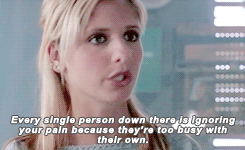The Art of Saying No
Reclaim Your Time And Energy, And Refuse To Be Taken For Granted.
Saying no to people is one of the most important skills you can develop. It frees you to pursue your own interests, both personal and professional. It will boost your productivity, improve your relationships, and fill you with a sense of confidence.
Saying no to our parents, teachers, bosses, coworkers and family members may be difficult task. But it’s worth the effort. Once you get the ability to say no with confidence and grace, you’ll notice changes in how others perceive you. They’ll have more respect for you (Hopefully 😃).
Most of the time we tend to be a people pleaser saying yes to most of the things coming to us. Obviously we are making the other person happy. How can this decision be regrettable?
But, saying yes to others means inherently we are saying no to ourselves.
Below are the few common reasons why most of the people struggle to say NO to others.
1. We want to avoid offending people
People often take offense at things that aren’t intended to give offense. An example is hearing the word “no” after they ask for someone’s help.
2. We want to avoid seeming selfish
Most of us care how others perceive us. We want to be thought of as good, caring, helpful individuals.
Self-care isn’t selfish. It’s necessary.
The problem is, if you’re constantly saying yes to other people, putting their priorities ahead of your own, you won’t have the time or energy to care for yourself. And you’ll slowly become irritated.
3. We struggle with low self-esteem
Burdened with a low self-image, we mistakenly believe our time is worth less than others’ time. We wrongly assume our goals and interests are inferior to other people’s goals and interests. We perceive our value to the world as somehow less than the value offered by those around us.
4. We want others to like us
This tendency is universal. But, it’s important to note that this tendency of getting validation from others may trigger tendency to say YES for others.
5. We fear missing out on opportunities
- Have you ever said yes to your boss because you were afraid that saying no would disqualify you for a raise, promotion, or new responsibilities?
- Have you ever said yes to a friend because you feared saying no would cost you a rewarding life experience?
That’s the fear of missing out (FOMO for short). It’s the anxiety we feel of being unable to take advantage of opportunities. And it’s a common reason many of us say yes even when we realize saying no would be a better decision.
Don’t say YES to everything blindly which comes to you. Instead analyse the time you need to spend on others tasks and sign-up for that.
The biggest challenge you face when learning to say no is overcoming the feelings of guilt, fear, and shame that surface when you disappoint people. That’s no small task. In many cases, it requires years of practice. Below are few ways of saying NO with confidence and grace.
1. Be straight forward
Being straightforward when turning down requests doesn’t mean you’re being discourteous. It helps to have a reason for saying no. Your reason validates your inability and/or unwillingness to lend a hand.
For example, consider the following two responses to a request for help…
- I don’t have time to help you.
- I don’t have time to help you because I’m working on a crucial report that’s due in two hours.
Second response helps others to understand the justification of your rejection in a better way. Always describe your reason for unavailability of bandwidth.
2. Don’t stall for time
When someone asks you for help, and you know you must turn down the request, don’t stall. Be direct and clear. Doing so may feel uncomfortable. It may even prompt the requestor to respond in anger. But you can’t control his or her response nor the emotions behind it.
Being sincere with a direct “no” shows respect. It also prevents the request from hanging over your head.
3. Take ownership of your decision
When you must turn down a request or invitation, express your decision as a personal choice.
Instead of telling the requestor, “I can’t,” tell him/her “I don’t want to.” Give a reason if you suspect doing so will defuse a potentially combative response. (Make sure your reason is sincere and not simply an excuse.) The important thing is that you own your decision.
4. Offer an alternative
No one likes to be left hanging. When you say no, give the requestor another option. Redirect him to another person who is better qualified.
Key Takeaways
- You’re not responsible for others reactions.
- Your time and interests are valuable.
- Saying No doesn’t make you a bad person.
- So better to start with the small “NO” s.
References
- The Art Of Saying No by “Damon Zahariades”




Top comments (0)